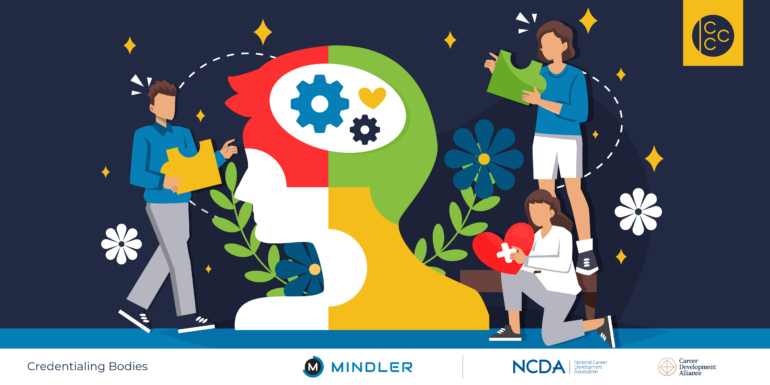Neurodivergent students are individuals with ADHD, autism, dyslexia, or other forms of cognitive variations. It is estimated that 15–20% of the global population is neurodivergent, and autism affects between 0.4% to 1% of children, and ADHD? about 8% of children and teens worldwide. As awareness grows, so does the demand for neurodivergent coaching and special education services that address their specific learning and behavioural needs.
Why Coaching Is Important
Concentration, planning, and emotional regulation are problem areas for the majority of neurodivergent learners. Traditional teaching methods may not support their learning styles, leading to:
- Executive Functioning Gaps: Students tend to have issues with task organisation, time scheduling, or task completion. The coaches ensure that these problems are simplified into smaller and achievable chunks.
- Low Classroom Engagement: Without flexibility and structures in classroom settings, neurodivergent students may become bored or overwhelmed by sensory stimulation. Coaching helps create focus and motivation by assisting students in dealing with distractions, combating boredom, and making the lessons relevant to them.
- Stress and Sensory Overload: Some learners experience excessive anxiety or unease in noisy or fast-moving environments. Coaching helps them acquire coping skills.
Such difficulties necessitate the implementation of targeted support. Coaching responds to unique needs and helps students relate to their learning in a more assertive manner.
Key Areas of Focus for Coaching
Neurodivergent coaching focuses on the most fundamental skills, enhancing everyday functioning and academic autonomy. These are the areas that neurodivergent learners have the most trouble with.
- Time Management: To assist the students in tracking assignments and deadlines, coaches make use of visual schedules, digital tools, and reminders.
- Task Initiation: Complex tasks are simplified by breaking them down into smaller chunks that do not overwhelm students and motivate them to start their work.
- Sensory Regulation: Support includes identifying triggers, using noise-cancelling tools, or taking short breaks when needed.
- Self-Advocacy: Students are taught how to state their needs and ask for fair and reasonable adjustments in the classroom.
These coaching areas develop skills and confidence in the long run. They also assist the teachers in knowing how to support neurodiverse students better.
Approaches in Neurodiversity Coaching
Efficient coaching incorporates simple, well-organised strategies that resonate with the information-processing strategies of neurodivergent students. Coaches modify techniques to accommodate the personal styles of learners.
- Visual Tools: Mind maps, icons, and colour-coded planners enable students to understand instructions and to remain organised.
- Predictable Routines: Predictable daily schedules can decrease anxiety and assist in improving students’ attention.
- One-on-One Coaching Sessions: Individual sessions enable more insight into the student and their adjustment to a learning pattern.
- Flexible Plans: As pupils acquire new skills or encounter new difficulties, coaches modify goals and strategies.
Most of the neurodiversity coaching certification programmes are built on these approaches. They make sure that the support is realistic, quantifiable, and appropriate to the needs of individual learners.
Training and Certification
With coaching needs increasing, professional training has become essential. Neurodiversity coaching certification and ethics are necessary to assist neurodivergent students.
- Formal Training: Courses on how to support neurodiverse students apply with the help of defined, respectful, and individualised approaches.
- Core Topics: These involve executive functioning, classroom communication, emotional regulation, and coaching ethics.
- Practical Benefits: Certified coaches are trusted by institutions, students and families, and they are more adequately equipped to handle real-world challenges.
Training guarantees that coaches satisfy institutional requirements and student needs. It also provides a more uniform standard among schools and universities.
Institutional Support & Classroom Actions
Several schools have recently been integrating coaching with daily classroom activities to accommodate neurodivergent students. Such initiatives are aimed at structure, flexibility, and accessibility.
- Visual Schedules and Charts: These are used to provide clarity on what is expected and assist the student in planning his or her day.
- Short Breaks During Lessons: Movement or sensory breaks provide short breaks to students to refocus and combat stress.
- Clear and Simple Instructions: Teachers are learning to break tasks into straightforward steps, which helps students stay on track.
- Designated Quiet Areas: These designated quiet areas give the kids the chance to take a break in noisy or high-density areas when they are overwhelmed.
These changes demonstrate that supporting neurodiverse students in class is not merely an issue of accommodation. It is about rethinking classroom structure to include all learners.
Global Trends in Neurodivergent Coaching
Saints College in Fitzroy North, Australia, opened in 2025 as a specialised school for neurodivergent students. The school offers small class sizes, therapeutic support, consistent routines, and regular meal breaks. It is set to expand to senior levels in 2026 due to demand.
In the UK, more than 15% of people are neurodivergent. Many struggle with time management, concentration, and emotional control. Several universities now offer one-on-one neurodivergent coaching to help students cope with academic pressure. These examples show that neurodivergent students benefit most when schools combine inclusive policies with specialised coaching services.
Conclusion
The rising number of neurodivergent students has made targeted support more important than ever. Neurodivergent coaching is no longer optional. It is an essential part of helping these learners succeed. Professionals trained through neurodiversity coaching certification are leading this effort with structured, personalised approaches. For real change to happen, institutions must support neurodiverse students through coaching, inclusive classrooms, training, and expanding access to special education careers.








